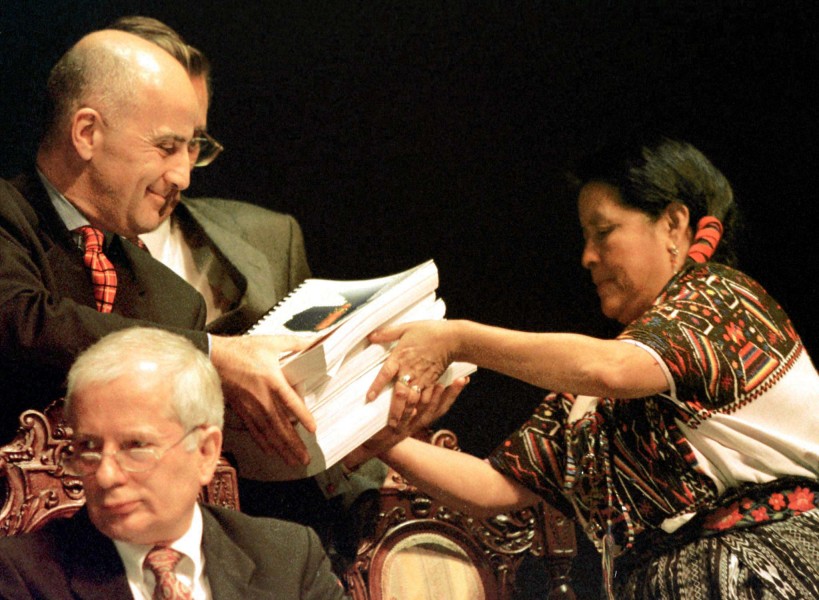New York, October 2, 2024—In societies grappling with legacies of mass atrocities, truth-seeking bodies and the reports they produce can be instrumental in exposing culpability, revealing root causes, and preventing a recurrence of violence or repression. Today, ICTJ is releasing a new research report that serves as a practical guide for those working in truth commissions and fact-finding bodies on how to convert large amounts of data and information into credible reports.
When fact-finding reports are the products of rigorous inquiry and are presented coherently and persuasively, they can become catalysts for change. Moreover, such reports can powerfully acknowledge the harm suffered by victims. In so doing, they begin the process of restoring victims’ human dignity as well as societal healing.
“Reports That Transform: Reporting Truth and Making Impact” draws on real-life experiences from multiple truth commissions and includes extracts and examples from operational documents. “The report will be an indispensable guide to investigators, researchers, and report writers working in large inquiries,” says Anna Myriam Roccatello, ICTJ’s director of programs and deputy executive director.
Transforming data collected from various sources is a challenging exercise for any truth commission or fact-finding body. “Virtually all big inquiries underestimate the effort and time needed to collate and analyze information and write the final report,” notes Howard Varney, the report’s author and a senior ICTJ expert.
This new research explains how to make sense of a mountain of data collected, what key questions to ask and resolve, and how to convert data into a readable and useful final report. It covers how to write reports, develop findings and recommendations, and deal with political interference. It also provides examples of typical report formats.
A good fact-finding report “should do more than set out a record of what happened, it should inspire people to do better, to ascribe to new values, and to build a new humane and caring society,” Varney writes in the introduction. “This guide will assist practitioners to produce impactful reports,” stresses ICTJ Executive Director Fernando Travesí, “reports that deliver answers to help transform society.”
______
PHOTO: United Nations Assistant Secretary General Alvaro de Soto (left) receives a report of Guatemala’s Historical Clarification Commission titled "Memory of Silence" from Otilia Lux de Coti, a member of the commission, during a ceremony at the capital’s National Theater on February 25, 1999. (Reuters)
